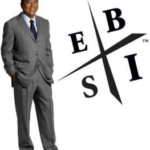Matt Morris is a leader in the industry. He’s a great trainer, with great tips. Here is his latest. Learn a lessong from him!
Posts Tagged ‘Financial Success’
 I’ve been as guilty as the next person wanting to know each and every detail of my network marketing company’s compensation plan.
I’ve been as guilty as the next person wanting to know each and every detail of my network marketing company’s compensation plan.
However, Tom ‘Big Al’ Schreiter had it just right. Here’s how he discusses a company’s compensation plan:
Compensation plans work like this:
If you have a lot of people using your products and services, you will earn a lot of money.
If you have fewer people using your products and services, you will earn less money.
That’s it.
Companies can only pay out a portion of sales in a compensation plan, so they have to pay it out to the people who produce the results.
That’s the big picture.
The people who micro-manage little percentages in a compensation plan are the people who have lots of time, because they don’t have a downline! 🙂
 I’m a fan of Robert Kiyosaki, if you haven’t figure that out!
I’m a fan of Robert Kiyosaki, if you haven’t figure that out!
He speaks extensively on the issue of Cash Flow.
Cash flow pattern of the poor . . . of the middle class . . . and of the rich.
The one most interesting, and what should be most troubling is the cash flow pattern of the middle class.
Kiyosaki paints the picture seen all too often:
- High paying jobs, with nice homes, cars and credit cards.
- Put money into retirement/401(k).
- Balance goes to purchase toys and liabilities that don’t put money in the pocket.
Over time, he notes, that lifestyle must be sustained. With higher paying jobs or working longer hours.
And then, the catastrophic ramifications of being laid off or fired.
The solution?
While he doesn’t reference it in this article, he has spoken on building a passive income asset.
But, he describes the cash flow pattern of the rich.
Investing in assets that generate income.
Where do you fall? Do you need to change? What steps are you taking?
Click here == >> New Rule of Money #3: Learn How to Control Cash Flow
 To be a Master Prospector in network marketing, listening skills are critical. Making a good impression and establishing rapport are key.
To be a Master Prospector in network marketing, listening skills are critical. Making a good impression and establishing rapport are key.
I’m reading the book, “17 Secrets of the Master Prospector”, written by John Kalench.
He says that one quality all Master Prospectors share is an insatiable curiosity about the people they meet.
How do you develop that curiosity if you don’t have it naturally? It’s a trait you need to develop.
He told the story about a “listening, not talking” study conducted by a psychologist who wanted to prove his “pet theory” on listening.
The psychologist purchased a first class ticket from New York to Los Angeles.
The experiment: Once on board, he would begin a conversation with the person seated next to him.
The rule for the five hour flight? He would not say a single thing about himself. He only would ask questions of his seatmate.
It went like this: the psychologist took his seat, and without introducing himself, he began asking questions. Question after question, without ever saying anything about himself.
When the plane landed, a team of researchers took the psychologist’s flying companion for an interview.
Two remarkable facts summarized by the researchers?
- The flying companion said the man sitting next to him was absolutely the most interesting person he had ever met in his entire life.
- He didn’t know his name.
Isn’t this a fascinating picture of human nature? And how people interact with one another?
In network marketing, the list of questions you can ask a potential business partner is endless:
- Where do you live? How long have you lived there? Do you like it? Have you always lived there?
- Where do you work? How long have you been there? Do you like it? What would you do if you weren’t working there?
- Do you have a family? How old are your kids? What do they do? What does your spouse do?
- What do you do for fun? Do you travel? Do you travel enough?
But asking the questions is only part of the process. Actually listening to the answer is critical.
How would you rank your listening skills? Does something like this come natural to you? Or does it make you nervous?
Inc.com passed on some solid advice they received from people who want to become millionaires at a young age. They pulled together 11 tips of advice from people who became millionaires at a young age, as well as people who studied hundreds of self-made millionaires.
They may not have had internet-based businesses in mind, but these tips apply across the board.
I’ve got a ways to go to hit my millionaire status, but a number of these were already on my list.
- Increase your income in increments. Earning passive income was on the list . . . and is my business model. How about yours?
- Develop multiple streams of income. Straight out of Robert Kiyosaki’s book—The Cash Flow Quadrant. “… the more income streams you can create in life, the more secure will your financial house be.”
- “…Every one of them (folks with million dollar fortunes) had the habit of reaching decisions promptly”
- Don’t show off. Show up. Save more and spend less.
- Invest in your future. Every day, I spend time reading and taking in mentor information through videos, books, and blogs.
- Rich people are typically self-employed and determine the size of their own paycheck. “While the world-class continue starting businesses and building fortunes, average people settle for steady paychecks and miss out on the opportunity to accumulate great wealth.”
- “If you want to make more money, you have to have a clear goal and then a specific plan for how to achieve that goal.”
- Hang out with people you admire. “We become like the people we associate with.”
Whether you are young . . . and have the millionaire goal . . . these are solid habits to follow for success.
Or if you have a few years on you, like me, but you are “still in the game”, this article is an excellent read.
How do you match up with this list? Which habits are you implementing? Which are you starting?
Click here == >> 11 Habits of Successful Business People Who Became Millionaires by 30
 First, a definition of Plan B . . . and then, the “The Fourth Quarter”.
First, a definition of Plan B . . . and then, the “The Fourth Quarter”.
Plan B is the back-up or alternative plan you have in place in case what you’re doing now doesn’t pan out.
You know, the job you hate . . . or the “pink slip” discussion with your boss . The unexpected medical situation . . . or even planning on your retirement years . . .
Before I left the professional world for my growing internet marketing business, I counseled many college students on their careers.
As the senior manager for two United States Senators and a U.S. Senate Committee, many college interns came through our doors. They were studying medicine, politics, law. They dreamed of their professional careers . . .
Maybe in a law office, working in Congress, like me, or working on public policy for their favorite cause. They all came to ask, “How did you get to where you are?”
I offered them some wisdom of age, in addition to career counseling, . . . Be thinking of what life will be like in 20 years, as you plan your life today.
Will they like their job? And what if they don’t? Do they have a Plan B to implement? What is that alternative plan?
I urged them not to let things get in the way . . . thinking they had time to kick their Plan B into place . . . tomorrow . . .
Because, before they know it, things like marriage, kids, a mortgage, car payments. You know, the things of life that get in the way.
Fast forward to ME. Last year I turned 60 . . . As my best friend, a year older, said, “we’re in the fourth quarter, buddy!”
I look back and I see some unfinished business. You see, I violated my own rule . . .
Kids, marriage, the job got in the way of building out my own Plan B to the level that I would want today.
Well, no more . . . I’m singularly focused on my Plan B. Which now has become my Plan A!
My wife and I have items on our bucket list that have been undone. Travel . . . and we mean significant travel . . . not just “up the road” to a Holiday Inn Express . . .
And I’ve long dreamed of a villa in the Caribbean, our favorite vacation spot. A work spot I can enjoy now (the beauty of an internet business . . . a good internet connection is all you need!) . . . And an asset that can be part of our family long into the future.
So there you have it. Plan B and the Fourth Quarter.
I don’t know which quarter of the ball game you find yourself in . . .
But, take it from me, it’s never too late for that Plan B.
What to know what I’m doing? You can reach me here.
Ok, I have to admit.
As a Washington Wizards fan, LeBron James hasn’t ranked very high on my list.
But I admire athletic talent when I see it . . . and particularly an athlete who brings his goals to the game.
This article “5 Lessons From LeBron James About Big Goals and Proving the Doubters Wrong” hit the nail on the head . . .
Not only for how LeBron brought home the NBA Championship . . . but also for how you might approach your goals.
Here are the five items the author attributed to James and his quest for the NBA Championship that you might find helpful to your goals and your life.
1. It’s not over ’til it’s over.
With all the critics and their prognostication, it would have been easy for LaBron to respond negatively. However, “nothing silences critics better than success, and LeBron used what the doubters said to push harder to prove them wrong.”
2. Tap into a personal passion.
LeBron brought attention and pressure on himself and promised Cleveland he’d bring home the trophy. In business, a mission is important to give your work purpose and to remind you “who’s counting on you to deliver.”
3. Recognize when to change your game plan.
“Past performance is no guarantee of future success, as the Warriors found out.”
4. You can’t do it alone.
“No matter how dominant you are, without reliable teammates you will not reach ambitious goals . . . Individual strengths need to add up to more than the sum of their parts.”
5. Have a vision for your legacy.
Each step in your journey should ultimately align with your goal.
Leaders need to know their vision. The road may shift, and there might be some potholes, but without a clear picture and vision, getting to the ultimate destination is questionable. And they don’t blame others or make excuses for their problems.
They step up and get on track? What track are you on?
Click here for “5 Lessons From LeBron James About Big Goals and Proving the Doubters Wrong”
“If you’re short on time, you need network marketing more than anybody else. Having more time isn’t the solution to most people’s problems. Time management is.”
These comments came from a short video by Ray Higdon, an industry leader and coach.
How true.
Here’s another comment in his article that jumped out:
“I remember one night my wife was doing a home meeting and after her presentation she asked a well dressed guy what he liked about the presentation. He replied “I work 70 hours a week” of which Jess replied, without hesitation, “Ewww, how long do you have do that?”
You see, some people use the fact that they are busy as an excuse from doing network marketing or from taking on another project that could potentially change their lives. IF you are super busy right now, do you have a plan that can possibly help you NOT have to be so busy? If not, that is a scary thought.“
Seventy hours a week? Is this you?
Click here for Ray’s short training video on the topic . . . Time Management for Busy People!





